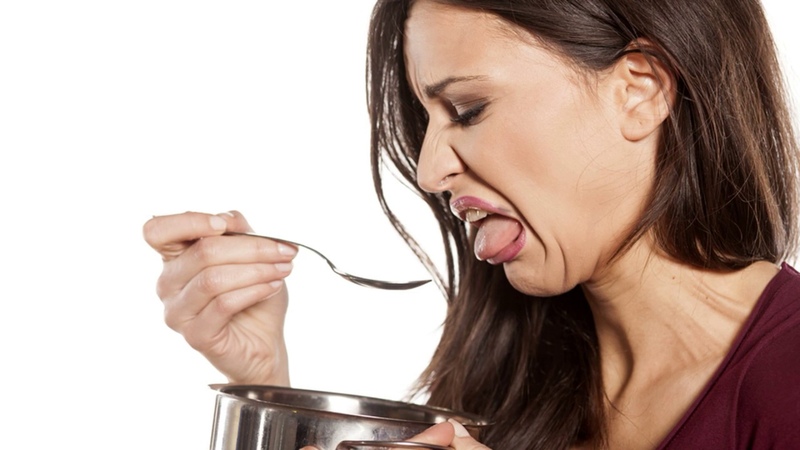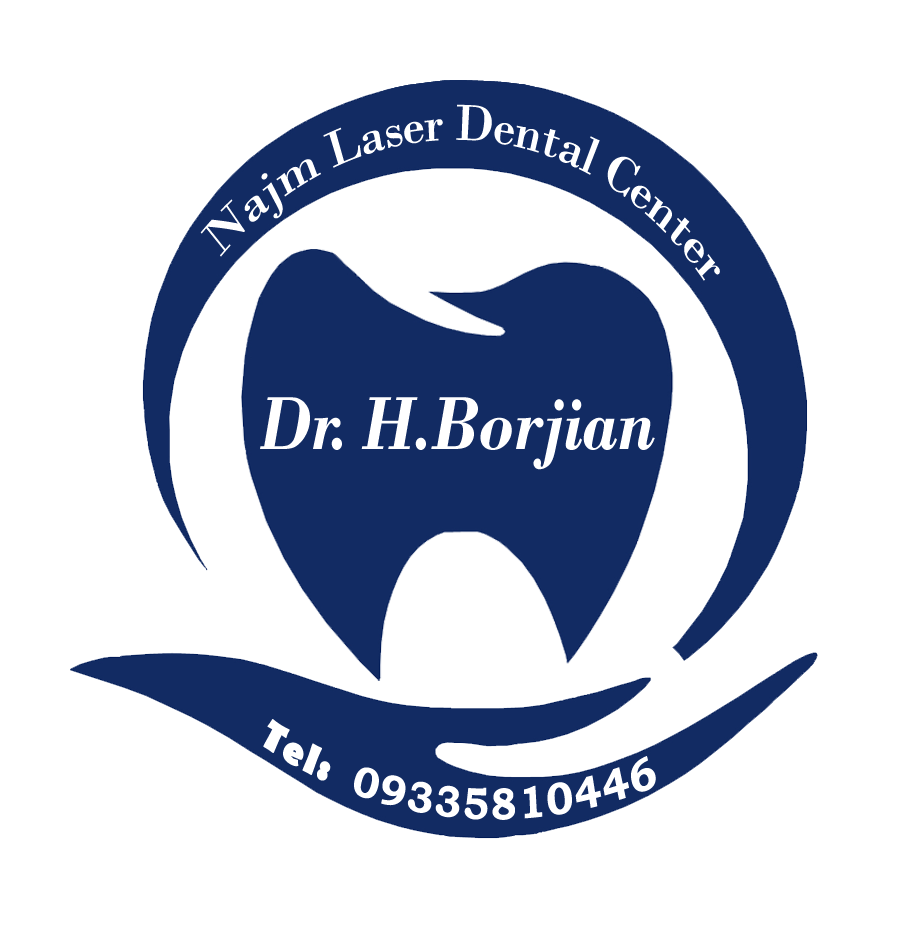Investigating the causes of bitter taste in the mouth
In this article from Dr. Hossein Borjian's website The best implant in Isfahan We examine the causes of bitter taste in the mouth. Three of the most common causes of bad taste in the mouth are::
- zinc deficiency
- Gastric reflux disease (GERD)
- Medicines, including chemotherapy
Medicines and bitter taste in the mouth
Reviews show. At least 250 different drugs can cause it Bitter taste in the mouth become. Some of the main drugs that cause a bitter taste in the mouth are::
Chemotherapy drugs:
including cisplatincyclophosphamide and etoposide
Some neuroleptics:
including anti-Parkinson drugs, migraine drugs and muscle relaxants
Heart medications:
Including many high blood pressure medications, diuretics, statins, and antiarrhythmic drugs
antibiotics:
including ampicillin, macrolides, quinolone hesulfamethoxazole- Trimethoprim, tetracycline and metronidazole
Psychotropic drugs:
These include most tricyclic antidepressants, some antipsychotics, anxiolytics, mood stabilizers, and hypnotics..
Other prescription and non-prescription drugs (OTC):
including thyroid drugs, antihistamines, bronchodilators, anti-inflammatories, smoking cessation aids, antifungals and antivirals. Doctors usually diagnose a sour taste caused by a drug after ruling out other causes. Doctors often start diagnosing the root cause of this condition by examining the following:
- infection
- cancer
- Acid reflux
- Nutritional deficiencies
Based on when symptoms appear, your doctor may be able to pinpoint the drug causing the problem. It may even be able to diagnose the underlying cause after looking at other medications you are taking. Then, if necessary, the stimulant drug may need to be discontinued or replaced.
Zinc deficiency and mouth bitterness
Zinc deficiency is one of the most common causes of taste disorders. The sour taste associated with zinc deficiency is often difficult to describe. While the exact cause is unknown, zinc increases the concentration of a protein called gostin. Since the body uses this protein to produce taste buds. Its deficiency may lead to taste problems. Zinc deficiency may be caused by the following conditions:
- alcohol
- Malnutrition
- Chemotherapy
- Lack of zinc in the diet
- Poor absorption of zinc in the intestines
- Kuprin (Penicillamine) which is used to treat kidney stones.
- Thiazide diuretics, drugs that increase urine output.
- Capoten (Captopril), an ACE inhibitor used for high blood pressure and other conditions.
In addition, zinc deficiency is associated with certain diseases. They include:
- cancer
- Celiac
- Crohn's disease
- diabetes
- liver disease
- Pancreatitis
- ulcerative colitis
- Chronic kidney disease
- sickle cell anemia
Diagnosis of zinc deficiency
Doctors diagnose zinc deficiency by measuring the concentration of zinc in a blood sample. If you are deficient in zinc, your doctor may recommend that you increase the amount of zinc in your diet. Foods that naturally contain zinc include::
- egg
- dairy
- Shell
- Red Meat
- Beans and legumes
While a daily zinc supplement may help normalize blood levels, it does not address what caused the low zinc levels in the first place..
However, for long-term improvement, identifying the cause is essential. For example, if a medication causes a zinc deficiency, you may need to consult your doctor to stop, replace, or adjust the dosage of the medication.. Figuring this out is often a process of trial and error. Your doctor will consider your age, weight, medical history, health status, current medication use, and concurrent symptoms in evaluating possible causes. While you can often correct a zinc deficiency with supplements, it's a good idea to find out what's causing your zinc deficiency.. Learning the cause allows you to solve the problem in the long run.

GERD or acid reflux
Lower esophageal sphincter (THE) It is located at the end of the esophagus. This group of involuntary muscles contract to prevent stomach acid from returning to the throat. This condition, known as acid reflux, can cause a sour or bitter taste as well as the following symptoms:
- cough
- hoarseness
- heartburn
- Chest pain
- Bad Breath
- Burning in the throat
- Difficulty swallowing
- Feeling of a lump in the throat
If it's accompanied by heartburn and occurs immediately after eating, you can usually pinpoint reflux as the cause of the sour or bitter taste.. However, see your doctor for an official evaluation and diagnosis.
Common triggers of acid reflux include::
- alcohol
- caffeine
- fatty foods
- Acidic foods
- smoking
- Eating large meals
Pregnancy and obesity can also lead to GERD. Because in both cases, excess weight puts pressure on the stomach and esophagus. Hiatal hernia (Stomach hernia) It can have a similar effect. This condition occurs when part of your stomach pushes through your diaphragm. As the stomach pushes up, it can change the position of the LES and not close properly.
To diagnose GERD, your doctor may suggest the following::
- Endoscopy, a procedure that allows examination of the LES.
- Manometry, a test that measures the contractions of the esophageal muscles.
- An ambulatory pH probe in which a swallowed probe measures how and when reflux occurs..
Treatment usually includes a combination of OTC and prescription medications. This includes:
- Antacids
- H2 blockers such as Prilosec (Omeprazole)
- Proton pump inhibitors (PPIs) Like Nexium and somprazole
- Liversall (baclofen) To help strengthen the LES muscles
Dietary changes, weight loss and smoking cessation can also help.
It can take a while to figure out which foods or activities are causing your acid reflux. Therefore, effective reflux treatment sometimes requires limiting or avoiding certain foods and taking OTC or prescription medications.. The good news is that once GERD symptoms are under control, the sour or bitter taste should also go away. A sour taste with heartburn that occurs shortly after eating is a sign that the bad taste in the mouth may be caused by reflux..
Other causes of bitter taste in the mouth
Other conditions may change your sense of taste or worsen an existing disorder, including::
- Infection or disease
- Burning mouth syndrome
- Poor dental hygiene
- Pregnancy, especially in the first trimester
- oral candidiasis (thrush)Fungal infection in the mouth or throat
- Menopause, which may alter taste due to changes in hormone levels.
- Brain injury or surgery, which can cause phantom limb sensation.
- dry mouth (Dry mouth syndrome), which changes the perception of taste.
- Dehydration that leads to dry mouth and affects the taste.
- Head and neck radiation therapy that can damage salivary tissues.
- Lead poisoning is often recognized by a blue line along the gum line.
- Anxiety and stress, which can lead to dry mouth and changes in the taste of things.
- Neurological disorders (Related to nerves) such as epilepsy, multiple sclerosis, Bell's palsy, brain tumors and dementia
- Pine nut syndrome, which can cause a bitter taste that may develop one to three days after eating pine nuts.
The Instagram page of Dr. Hossein Borjian, the best implant in Isfahan
Methods to remove the bitter taste in the mouth
Whatever the root cause of the bitter taste, there are things you can do to reduce or relieve your symptoms. Some practical tips for home treatment include::
- Chew sugar-free gum to increase saliva production.
- Quit smoking. Whatever the root cause of the sour taste, smoking only exacerbates its effects.
- Observe oral hygiene. Don't forget regular dental checkups and antibacterial mouthwash.
- Avoid spicy or fatty foods that cause acid reflux. Even if GERD isn't the cause of your bad taste in your mouth, acid reflux will only make your symptoms worse.
- Gargle with half a teaspoon of salt plus a teaspoon of baking soda added to a glass of water, which may help reduce the bitter taste..
- Drink plenty of water, which can hydrate your mouth and make you urinate. Frequent urination can help flush out impurities that may be contributing to your symptoms. Adding a little lemon juice to water may also help reduce the bad taste in your mouth.
Attention :
- The scientific accuracy of the above article should be consulted with Dr. Borjian, a specialist, in person Gum and bone grafting be confirmed.
- This article was managed and published by the site admin.
Read more :
Diagnosing the symptoms of tongue cancer
Wisdom tooth infection treatment methods
Causes and symptoms of roof of mouth pain



